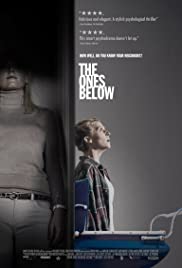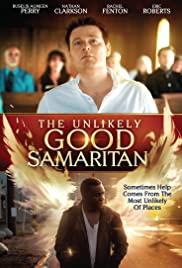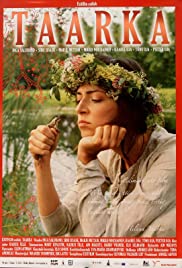
An independent tragicomedy, Run If You Can is the debut feature for director Brüggemann who, along with his sister, also wrote the compelling screenplay. Forced to spend the rest of his life in a wheelchair, Ben is deeply desperate, despite his humor and vivaciousness. When he meets Christian, his new assistant, Ben treats him like every other helper he’s had. Things suddenly change when Christian meets Annika, “the cello player” whom Ben has been observing from his window for years. The three become close friends, putting Annika in the middle of an emotional, and somehow dangerous, ménage à trois. While conquering Annika is nothing very serious for career-focused Christian, Ben’s love for Annika reminds him of his past and forces him to face his most remote fears. A character-driven story, Run If You Can owes much of its power to the actors’ performances, especially Robert Gwisdek’s outstanding interpretation of Ben.
You May Also Like

Two competing groups of high school students must rally together and enter a song and dance competition in order to save their church from closing.

Having failed to make it as an actor, a suicidal man torments a top film producer while holding him captive.

Director and technicians go to Sicily to make a film about a real case of pedophilia. A film within a film.

Felicity Bannister is a young woman living in the shadow of her overpowering mother. Her oppression is her worst enemy until the day she is attacked by an intruder who breaks into her bedroom and forces Felicity into action. The tables are suddenly turned and Felicity transforms from the helpless victim into a ruthless renegade in search of trouble, driven by the anarchic thrill of malevolence.

A couple expecting their first child discover an unnerving difference between themselves and the couple living in the flat below them who are also having a baby.

Dorj and his heavily pregnant wife Suren live an idyllic nomadic life on the Mongolian steppe, but as Suren develops complications during childbirth, the local doctor advises them to venture into the capital city to seek medical attention. With no official documentation they find themselves unable to cover the medical fees and Dorj must pawn their wedding belongings before signing up to a local karaoke contest. A heart- warming and feel-good road movie about the clash between nature and the urban world. Out of Paradise is as much a love story as a reflection on our modern ways of living.

A photographer travels with her boyfriend to a seaside village in Penghu. There she strikes up a relationship with a blind man. When they reencounter one another back in Taipei, where he is preparing to undergo an operation to restore his sight, their connection intensifies.

Willington’s only love, Mariana, is about to get married to René, Willington’s cousin. While Willington is trying to get her back, a demobilization process concerning an illegal armed group is underway in the region, and new killings, besides rumors of a thief at large, will endanger Mariana’s new family.

The Unlikely Good Samaritan follows the paths of two men: Sam, an ex-convict and mysterious drifter looking to escape his past and find new meaning in life, and Chris, a proud, small-town pastor and new husband, attempting to impress his congregation and deal with an issue that could shatter his wholesome image. The men s paths collide in a dramatic and intriguing way, challenging the characters to reexamine what a good person really looks like.

Lilo, Stitch, Jumba and Pleakley have finally caught all of Jumba’s genetic experiments and found the one true place where each of them belongs. Stitch, Jumba and Pleakley are offered positions in the Galactic Alliance, turning them down so they can stay on Earth with Lilo. But Lilo realizes her alien friends have places where they belong, and it’s finally time to say “aloha.”

The first film in the Seto language in the world speaks about the brightest heroine of a small people, the folk singer Hilana Taarka, a woman who lived her whole life as an outcast in a small chimney-less hut; as an unmarried mother of children in poverty, begging her bread, doing odd jobs and singing. She always sang the truth, sometimes bitter, sometimes funny, sometimes cruel. She was feared, despised and coveted. Taarka sang throughout her remarkable life, throughout her fate, from a small Seto village to international fame. And she sang well. Really well. Taarka became the Mother of the Song, a legend. But as a woman, as a member of the community, the Seto people never really accepted her. Taarka – a despised woman and a worshiped singer.